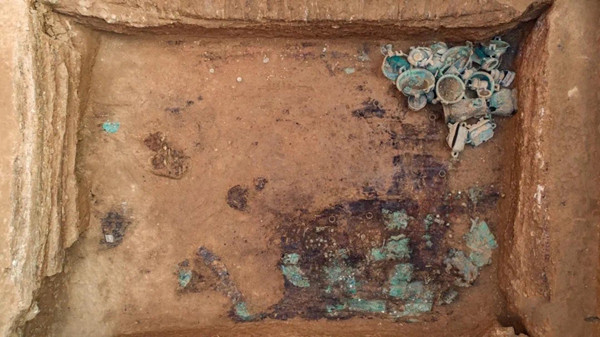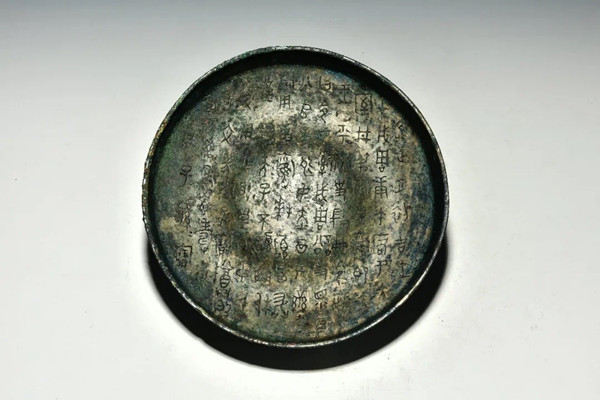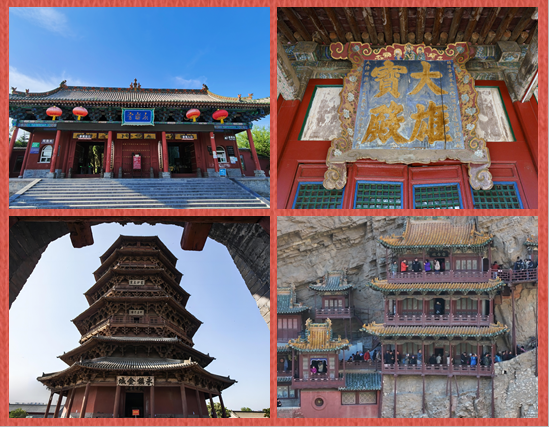Ancient noble tombs discovered in southern Shanxi

An overview of an excavated tomb in the Beibai'e Cemetery site in North China's Shanxi province [Photo provided to chinadaily.com.cn]
Ancient tombs discovered in the Beibai'e Cemetery site in Yuanqu county -- administered by Yuncheng city in North China's Shanxi province -- belonged to senior nobles of the Zhou Dynasty (c.11th century-256 BC), according to an announcement made by Shanxi Provincial Institute of Archaeology on Dec 9.
Experts made the determination after they studied the tombs' shape, form and various artifacts.
From April to December this year, the institute, together with Yuncheng Cultural Relics Workstation and Yuanqu Cultural and Tourism Bureau, conducted archaeological excavations at the Beibai'e Cemetery, located in Beibai'e village, Yuanqu county.
The excavation area covered 1,200 square meters and nine large and medium-sized tombs and 17 ash pits were excavated.

An exquisitely carved dish comes from the ancient tombs in the Beibai'e Cemetery site [Photo provided to chinadaily.com.cn]
According to Yang Jiyun, associate researcher of Shanxi Provincial Institute of Archaeology, the tombs unearthed were for high-caste nobles. Of the nine tombs, three had openings of more than 6×4 meters.
There were many types of unearthed artifacts -- 500 in total -- including those made of copper, jade, stone, lacquer, pottery, bone, lead and gold. In particular, the most important discovery was some 50 sets of bronze ware with inscriptions rich in content and clear in text.
Yang said that the discovery at the Beibai'e Cemetery site provided new reference points for the study of the political and feudal system in the Zhou Dynasty, as well as the burial system, ethnic affiliations and social life in southern Shanxi during that period. It was of great value for research into the civilization process of southern Shanxi and the region's connection with Central China.



